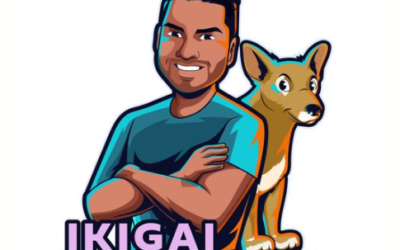Professional coaching has become an immensely popular tool for personal, professional and executive development. However, it remains an unregulated industry in which anyone can suddenly decide they want to call themselves a coach and start taking on clients. To realize the actual benefits from the experience, you want to make certain that you choose a coach who aligns with who you are and what you want to do. With a little bit of leg work, you can sift through those who only appear competent and find the ones who have the proper skills and training to deliver true growth.
Here are five questions to ask when looking to hire an executive coach:
1. Are they a skilled coach or a good marketer?
Coaches market in a number of ways. In addition to optimizing their websites for organic search, coaches appear on podcasts, conduct seminars, and create content to present their philosophy and perspective to the public. However, these formats don’t necessarily reveal whether they are skilled in actual coaching. A good marketer knows how to speak to the desires and fears of their target audience, while a good coach also knows what questions to ask and what tools to use to empower their clients to overcome their specific challenges. While you can find coaches through marketing, make sure to do additional research into each candidate to make the most of your time, money, and effort.
2. What are their credentials?
It is tempting to see a mention of accreditation on a coach’s bio or resume and feel some measure of assurance that this person has received appropriate training and experience to do this work. However, the organizations that provide accreditation are no more regulated than the industry itself, so it is important to take the extra step of researching what training the coach has received. For example, there are some coaching certification programs that last only six weekends and provide minimal or no hands-on experience as part of the training. Other programs — some offered by reputable universities — offer a far more robust curriculum that includes direct client work necessary to develop the skills of their students. Taking the time to pull back the certification curtain will help screen out amateurs.
3. How much coaching experience do they have?
A coaching certificate is not the only way that a person can become a good coach. Certification programs have only gained popularity in the last 20 years, and there are coaches who have been doing the work effectively for longer than that. Instead, take a look at their resume and bio for other indicators of a solid career providing the foundation and substance of the person’s coaching ability. Years of coaching can be supplemented by practical experience in a specific industry. Be careful though: You want to make sure that the coach has actual experience working one-on-one with clients as a coach. An industry leader may have the skills and experience to be a great mentor or consultant, but it takes specific training and experience to know how to be an effective coach. There is no substitute for actual coaching experience.
4. How did they do in the interview?
Before hiring a coach, be sure to do a thorough interview of the coach. Ask them how they work with their clients. Do they know how to adjust their approach to cater to the needs of the client? Does this match with what you hope to get from your experience? You can also ask what they have worked on with clients in the past — if their successes have been in specific areas that don’t coincide with your needs, they may not be a good match.
Also, pay attention to their ability to ask questions and the specific questions they ask. If they jump to giving advice or solutions without asking clarifying questions about your goals and what success means to you, that is not coaching. You want the relationship to produce meaningful results and a coach can not do that if they do not genuinely care about what is meaningful to you.
Lastly, look for someone who makes you feel comfortable, but will also push you. It’s lonely at the top — often you will be sharing very personal aspects of yourself with your coach. A coach is not someone who is going to tell you exactly what you want to hear all of the time. Often, they will ask questions that might evoke feelings of discomfort because they hold up a mirror to show you things you might not want to face. Be wary of folks who tell you exactly what you want to hear all of the time, and choose the person with whom you feel you can share your vulnerabilities more freely.
5. What do their other clients say?
Your coach candidates do not have to be your only interview. Other clients can be an excellent resource for evaluating a good coaching match. Coaches can often provide references who can attest to their ability to help their clients realize effective change and growth. When checking references, ask them about their goals and explore how the coach worked with them. What is the coach’s style? How do they help with identifying issues, accountability and getting unstuck? Don’t be afraid to ask whether other clients found value in the investment and be certain to ask about the coach’s weaknesses.
By doing your due diligence about a potential coach, you can establish an important foundation for success. Starting with confidence in the coach, as well as a good understanding of the coaching experience they offer, paves the way for a deeper coaching relationship.
This blog was originally published on Forbes as part of the Forbes Coaches Council. Read more from Dhru and the Coaches Council.



Recent Comments